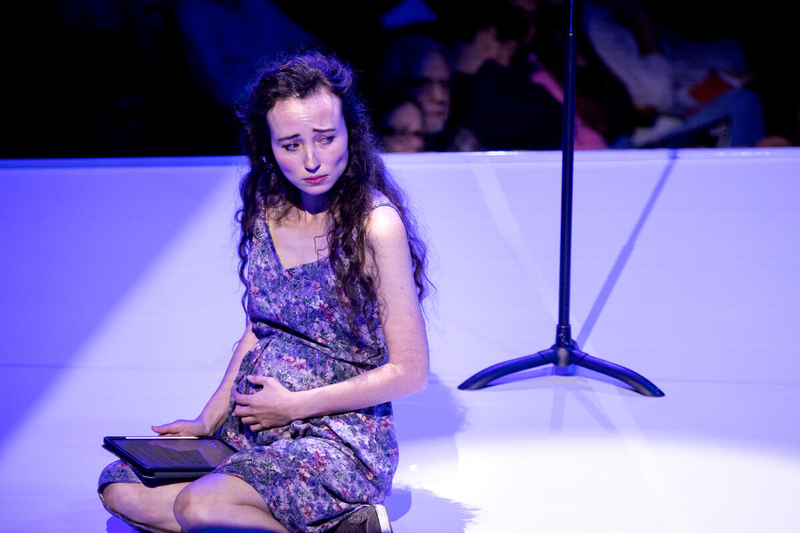
ANOTHER WAR, A LAST TESTAMENT
The San Francisco Symphony made its once-a-year venture into theater with the semi-staged opera “Adriana Mater” (2006) by Kaija Saariaho, displaying a brilliant cast with dramatic singing and evocative acting on the confined makeshift stages.
The performance of the rabidly antiwar tragedy “Adriana Mater” about the heroine’s travails in a brutal conflict could hardly have been timelier, echoing the on-going Ukraine campaign’s bloodshed. It also serves as a heartfelt memorial to composer Saariaho, who had passed away at age 70 a week earlier. She had ranked among the world’s foremost active creators of music for the voice.
Musical complexity and sophistication like Saariaho’s is no guarantee of successful opera, as we learned with the 20th century Polish School. The percussion-rich orchestral ensemble is a multi-dimensional undercurrent beneath the voices, more severe than attractive, coming strong to the fore only in a couple of instrumental interludes.
Wading through this drama was a difficult ordeal for an audience that concluded with respectful but restrained applause at the end. This is an opus that warrants a stage-play adaptation, taking advantage of the Lebanese Amin Maalouf’s trenchant libretto, whose French was rarely discernible given the hyper-dramatic voices and orchestra. Fortunately, English translations were projected throughout. Maalouf’s tragedy recalled antiwar dramas of Brecht, Remorque, Borchert and Hasek.
The S.F. Symphony’s semi-staged performance was especially challenging for fellow Finn Esa-Pekka Salonen, conducting while extensively cuing the forces in every direction about him, constantly pivoting like a basketball center. He had known Saariaho since they were “very young,” even before becoming schoolmates at the Helsinki (Finland) Conservatory a half century ago, though quite dissimilar in age. Since then, each has emerged among the international elite: Saariaho as an operatic composer in France, and Salonen as a West Coast music director.
In the title role, the multi-national dramatic mezzo Fleur Barron embodied all the anguish of Adriana confronted by a raging war and a friend turned rapist, then bearing the child Yonas (tenor Nicholas Phan, in his most dramatic role here ever) who, growing up, berates her for hiding the nature and name of the rapist-father. Most of act two consists of Yonas threatening to kill his dad Tsargo (bass-baritone Christopher Purves), by then a pathetic derelict shadow of his old warrior self. Soprano Axelle Fanyo played Adriana’s sister Refka, the contrasting figure of peaceful moderation.
The opening night’s success was shared also by the mercurial stage director (and frequent John Adams collaborator) Peter Sellars, guiding the singers while separated on four 15-foot-square platforms wiping out part of the front row. The singers were much challenged by carrying small tablets of the tricky score throughout. The wonder was that the drama still shone through.
The misfire of the laudable performance was the placement of the (largely wordless) SFS chorus high in the side terraces, rendering it almost inaudible to most of the audience.
In case the headline relevance of the message was lost, designer James F. Ingalls produced yellow and blue lighting from the start, matching colors of the Ukrainian flag.
Memorable was the closing line of the only true vocal ensemble, when the four lament, “It’s time for the gates of Hell to close.” Amen.
MUSIC NOTES—To squeeze in the whole opera into a 150-minute performance span, the SFS had to slash the length of intermission by nearly half….Earlier, Saariaho had cast the venerable Oakland mezzo-soprano Lorraine Hunt in her earlier opera. Tragically, Hunt died in 2006 at the age of 52, still fully engaged in her international career.
“Adriana Mater,” an opera in French by Saariaho, semi-staged under Peter Sellars’ direction, with the S.F. Symphony and Chorus. Two acts. June 8, 10, 11, Davies Hall, S.F. For info: (415) 864-6000, or go online, www.sfsymphony.org.